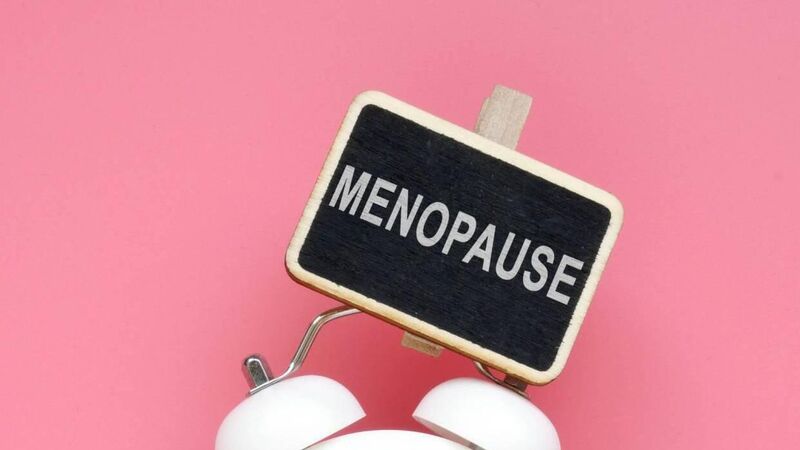Here is my experience of the menopause: I hope it helps you

There is plenty of information out there on menopause, women needn’t suffer in silence, says Ailin Quinlan
Lots of newspaper articles are written about it in health supplements and magazines, and there are plenty of books about it.
But, oh yeah, try bringing it up in conversation and watch how quickly somebody will do an eye-roll and change the topic to something less “icky”.
This taboo is even to blame for the image of the traditional wicked witch with whiskers - this sneering, misogynistic stereotype is based on the fact that perfectly innocent menopausal women can be plagued by facial hair.
Seoige, who is set to present a new TG4 documentary on the menopause this autumn, has declared that the lack of discussion on the topic in this country is “criminal”.
So here goes, I’m going to talk about it.
I was a menopause ignoramus. The really embarrassing thing is that I happened to be interviewing experts on it and writing features about it for a number of daily newspapers at the time, but I didn’t join the dots about my own symptoms.
I went to the GP. I was referred to a consultant and had an ultra-sound scan. It showed the existence of a number of small fibroids, or benign tumours, in my uterus. It was decided this could all be resolved by a fairly mild, very straightforward procedure. Not an operation.
While I was waiting to go into hospital, I was prescribed some kind of tablets to help with the bleeding. Alas, when I woke up following surgery, the news was bad; the consultant explained that in the time that had elapsed since the ultra-sound images were taken, the fibroids had blown up into the size of oranges. So I hadn’t had a mild surgical procedure after all; I’d had a full-on operation and it would take several weeks to recover.
It took months before I was back to normal. I even missed a family wedding. Believe me, nobody was sorrier for me than I was.
Oddly, despite the pain and the discomfort and all the rest of it, one of the things I remember most from that time was what the nurse in the recovery room told me. She said that she had known patients who had undergone a similar operation to me - only they had it in their seventies.
For years. I remember waking up at night in the dead of winter, covered in a horrible heavy sheen of sweat. The sheets would be wringing wet. I’d kick everything off and go back to sleep and then wake up utterly frozen an hour later.
There was severe anxiety, which at the time I didn’t realise was so obvious to everyone else until someone broke the key in the back door and nobody told me until the lock had been changed - very rapidly - because they all thought I’d lose my life.
Once I copped on, I decided not to take Hormone Replacement Therapy and opted for an alternative, herbal route which worked effectively to manage most of the symptoms.
The thing about menopause, as Dr Dilis Clare, the renowned Galway-based GP, medical herbalist and expert on menopause once explained to me, is that the body is like an orchestra.
When menopause arrives, the orchestra starts going out of tune and it seems to be a bit of a lottery as to how much chaos ensues.
For some, menopause is a mild experience. For others it’s moderate, and for the unlucky others, it’s severe.
But, as Seoige says, menopause is a natural and inevitable transition. You can’t avoid it. It’s better off to look it full in the face and learn about what it can entail before it hits.
One of the really sneaky things about menopause is that it tends to happen when life is at its busiest - you’ll possibly still be working full-time with a family of angsty teenagers to deal with, and ageing parents needing more support than they did before.
And there’s still so much shame about women’s health and fertility, plus, as Seoige also points out, there’s also society’s obsession with youth culture.
This emphasis on appearing as young as you can for as long as you can is healthy in terms of encouraging one to eat well and exercise regularly, but it can also result in the fact that women don’t want to think about menopause.
Do think about it. There’s plenty of information out there, and unlike the unfortunate women in times past who were so paralysed by lack of knowledge and social taboo that they secretly struggled with horrendous physical symptoms for decades, you can talk about it, learn about it, and get help with it.
Seoige’s show, Meanapás: Meon Nua, wants to raise awareness around the change of life and drive a campaign for a national menopause policy.
Good on them.







 App?
App?




